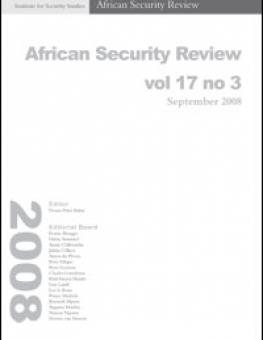
Climate change: A new threat to stability in West Africa? Evidence from Ghana and Burkina Faso
Over the past decades, the way we talk about climate change has evolved. Traditionally seen as an environmental and an energy issue, climate change is now also being cast as a threat to international peace and security. Analysts argue that climate change will exacerbate existing tensions and triggers new conflicts by redrawing the maps of water availability, food security, disease prevalence, coastal boundaries and population distribution.
The security implications of climate change have become the subject of unprecedented international attention; in 2007 the focus of a Security Council debate and the Nobel Peace prize. There have been some attempts to construct scenarios of the security implications of climate change at a global scale. But the country-level security impacts of climate change have been lost in the midst of the political rhetoric. Local experts in the subject countries are rarely consulted.
In this article for the September 2008 edition of the African Security Review, published quarterly by the Institute for Security Studies, Africa's leading human security research institution, Oli Brown and Alec Crawford draw on their fieldwork in Ghana and Burkina Faso to see to what extent the links that have been hypothesized reflect a realistic future for two different countries in West Africa as the impacts of climate change gather pace.
Key findings:
1. Ghana and Burkina Faso already face considerable development challenges from existing economic, population and environmental stresses.
2. Climate change is not new to West Africa. West Africa in general and the Sahelian region in particular are characterized by some of the most variable climates on the planet.
3. Future climate change will likely make many current development challenges more complex and urgent.
4. There are links between climate change and security in the region. However, there is little research that has managed to construct an empirical link between climate change and conflict in the region (or, for that matter, anywhere else).
5. Climate change could exacerbate existing, latent tensions in Ghana and Burkina Faso.
6. But only in the extreme scenarios does climate change begin to present a determining factor in future economic and political instability.
Key recommendation:
Adaptation needs to focus on the full range of development problems affecting countries. Adaptation to climate change clearly needs to be integrated within wider plans for development assistance, and the additional costs for that adaptation need to be funded with "new money" so as not to undercut development priorities elsewhere.
Participating experts
You might also be interested in
December 2024 | Carbon Minefields Oil and Gas Exploration Monitor
In November 2024, 23 oil and gas exploration licences were awarded across five countries, with Russia granting the licences that account for the largest portion of embodied emissions.
Toward a Coherent, Transformative Approach to Financing Sustainable Development, Climate, and Nature
Four key proposals for the Fourth Financing for Development Conference (FfD4) to create an integrated, equitable approach to financing climate, nature, and development goals.
Green Public Procurement in India
This report analyzes the status of green public procurement (GPP) in India and suggests key strategies for advancing sustainable procurement practices.
Sustainable Asset Valuation (SAVi) of a Small-Scale Tree Planting Initiative in Côte d'Ivoire
This report analyzes the social, economic, and environmental outcomes of a small-scale tree planting initiative at schools in Côte d'Ivoire.